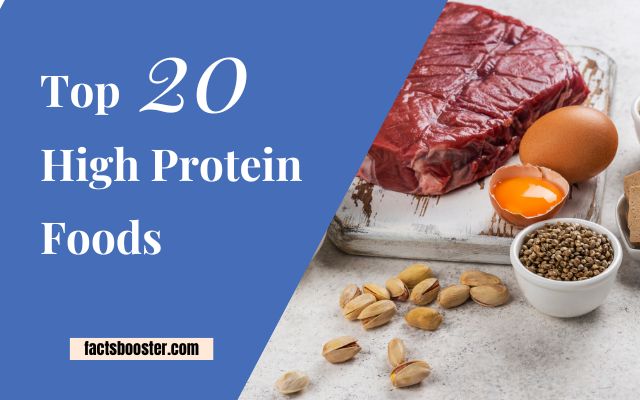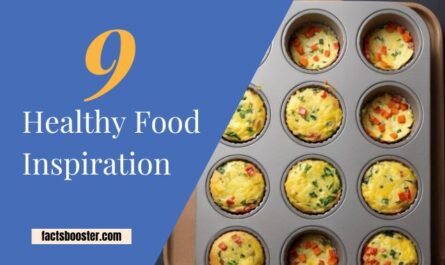So, you’re on a quest for a healthier lifestyle, and you’ve heard the buzz around protein’s pivotal role in your diet. But where do you start, and what are the top 20 protein foods?
Protein, a powerhouse nutrient essential for muscle repair and growth, isn’t as elusive as it may seem. With an overwhelming array of food options, pinpointing those high in protein can feel like a puzzle.
That’s where we slide in, ready to guide you through the top 20 protein-rich foods. From animal to plant sources, we’ll unravel the protein content and health perks of each, ensuring you can not only meet but exceed your protein intake goals.
Key Takeaways:
- Protein’s Importance: Understand protein’s critical role in muscle building and overall health.
- Top 20 Protein Foods: Discover a variety of animal and plant-based foods high in protein.
- Health Benefits: Explore the multifaceted benefits of incorporating high-protein foods into your diet.
Protein and Its Importance

Ever wondered why everyone seems to be talking about protein? Let’s dive into why this nutrient is the talk of the town. At its core, protein is a vital building block of bones, muscles, cartilage, skin, and blood.
You name it, protein is there, playing a crucial role. But it doesn’t stop at just being a building block. Protein is integral for repairing cells and making new ones, making it absolutely essential for muscle building and repair.
Think of protein as the fuel that keeps the engine of your body running smoothly. Whether you’re an athlete looking to enhance performance, someone trying to shed a few pounds, or just aiming to maintain a healthy lifestyle, adequate protein intake is your best friend.
It supports your efforts by not only helping you feel fuller longer but also by ensuring your muscles and tissues are in top-notch condition.
What’s more, the beauty of protein-rich foods lies in their versatility. From animal-based sources like lean meats, dairy, and eggs, to plant-based champs like legumes, nuts, and seeds, there’s something for everyone.
So, whether you’re exploring a plant-based diet or you’re all about traditional protein sources, ensuring you’re getting enough of this essential nutrient is key to keeping your body strong and healthy.
Read more:
What Are The Top 20 Protein Foods?
- Chicken Breast: A staple in high protein foods, boasting about 31 grams per 100 grams. It’s lean meat that supports muscle growth and maintenance. (1)
- Eggs: An egg offers around 6 grams of protein. It’s also packed with essential vitamins and minerals, supporting overall health.
- Almonds: With about 21 grams of protein per 100 grams, almonds are great for heart health and loaded with antioxidants.
- Greek Yogurt: A creamy delight offering approximately 10 grams of protein per 100 grams. It’s also rich in probiotics, aiding in gut health. (2)
- Oats: Offering about 17 grams of protein per 100 grams, oats are a hearty choice for sustained energy and fiber.
- Cottage Cheese: With approximately 11 grams of protein per 100 grams, it is a fantastic source of calcium and aids in bone health. (3)
- Lentils: Packing about 9 grams of protein per 100 grams, lentils are a powerhouse for vegetarians, also rich in fiber.
- Lean Beef: Offering about 26 grams of protein per 100 grams, lean beef is not only protein-rich but also loaded with vital nutrients like iron.
- Fish (Salmon): Known not just for its 20 grams of protein per 100 grams but also for its omega-3 fatty acids, supporting heart and brain health.
- Quinoa: With about 14 grams of protein per 100 grams, quinoa is a complete protein and gluten-free, making it perfect for those with dietary restrictions.
- Peanut Butter: Offers about 25 grams of protein per 100 grams. It’s not just tasty but also packed with heart-healthy fats.
- Turkey Breast: Contains roughly 30 grams of protein per 100 grams, making it an excellent lean protein source for muscle maintenance.
- Tofu: Offering about 8 grams of protein per 100 grams, tofu is a staple for plant-based diets, rich in iron and calcium.
- Edamame: With about 11 grams of protein per 100 grams, edamame is fun to eat and a great source of fiber and antioxidants.
- Chickpeas: Providing around 19 grams of protein per 100 grams, chickpeas are versatile and beneficial for heart health.
- Black Beans: These beans offer about 8 grams of protein per 100 grams, alongside fiber and antioxidants.
- Walnuts: With about 15 grams of protein per 100 grams, walnuts are brain food, thanks to their high omega-3 content.
- Pumpkin Seeds: Offering a whopping 19 grams of protein per 100 grams, pumpkin seeds are also a good source of minerals.
- Chia Seeds: These tiny seeds pack about 17 grams of protein per 100 grams, along with a high content of omega-3 fatty acids.
- Whey Protein: A supplement that can provide about 25-50 grams of protein per serving. It’s a high-quality protein source that aids in muscle repair.
Animal-based Protein Foods
When you’re eyeing those muscular gains or just aiming to maintain a robust and healthy lifestyle, the protein sources you choose can make a big difference. And if you’re someone who enjoys or prefers animal-based foods, you’re in luck.
Animal products are teeming with high-quality protein that’s pivotal for muscle repair, growth, and overall wellness. So, let’s dive into some of the powerhouse protein providers from the animal kingdom.
- Lean meats like chicken breast, turkey, and lean cuts of beef are not just packed with protein; they’re also brimming with essential nutrients like iron, zinc, and B vitamins to power through your day and workouts.
- Dairy products, think Greek yogurt, cottage cheese, and milk, offer a fantastic combo of high-quality protein and calcium, supporting bone health alongside muscle maintenance and growth. Plus, they’re versatile enough to be incorporated into meals any time of the day.
- Eggs, often hailed as the perfect protein, boast a complete amino acid profile, making them an indispensable part of any diet, whether you’re scrambling them up for breakfast or hard-boiling them for an on-the-go snack.
Between these top-tier animal-based high protein foods, you’ll find not just the building blocks for your physique but also a treasure trove of nutrients essential for peak health and performance.
Plant-based Protein Foods
When we talk about loading up on protein, it’s not just the animal-based foods that have got your back. For anyone leaning towards the verdant side of the dining spectrum, here’s the scoop on the plant-based protein champions.
These sources are not just high in protein but are loaded with other nutritional benefits, making them a smart choice for vegetarians, vegans, and anyone looking to diversify their protein intake.
- Legumes: Think beans, lentils, and chickpeas, which are not only high protein foods but also rich in fiber and micronutrients. A cup of cooked lentils, for example, packs about 18 grams of protein.
- Nuts and Seeds: Almonds, chia seeds, flaxseeds, and hemp seeds might be small, but they’re mighty in protein content. Besides protein, they’re a fantastic source of healthy fats and omega-3 fatty acids.
- Certain Grains: Quinoa and amaranth lead the pack in the grains category, offering a healthy dose of protein along with essential amino acids, making them complete protein sources. A cup of cooked quinoa offers about 8 grams of protein.
Embracing these protein-rich foods can significantly enhance your culinary landscape, offering a variety of flavors, textures, and health benefits. So, go ahead, explore these plant-based wonders, and enrich your diet.
Bottom Line
So, there we have it, a tour through the vibrant world of high-protein foods, from juicy steaks to hearty legumes. With each bite, you’re not just satisfying your taste buds; you’re fueling your body’s need for protein—a critical player in muscle repair, energy levels, and overall wellbeing.
Remember, incorporating a mix of both animal-based and plant-based protein sources ensures a well-rounded diet. Let this guide inspire you to make informed protein intake choices, adding not just variety but vitality to your meals. Cheers to your health!


